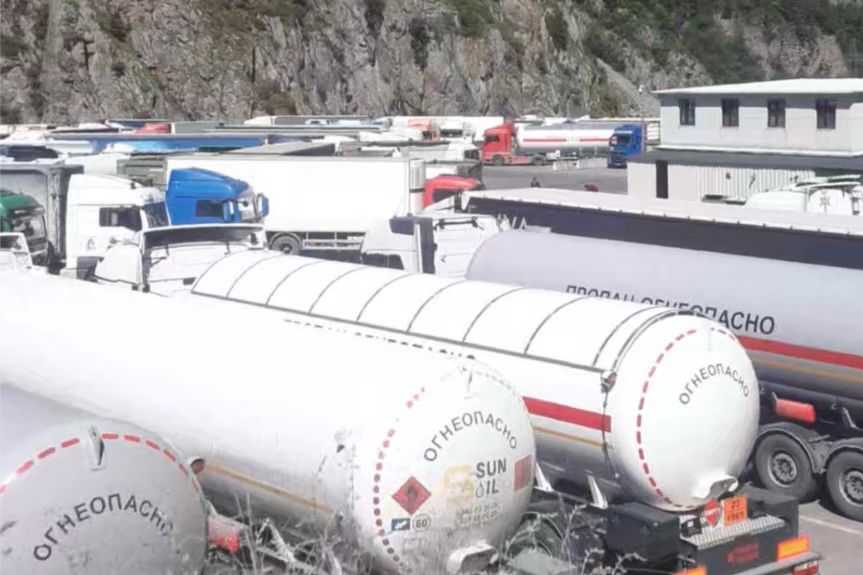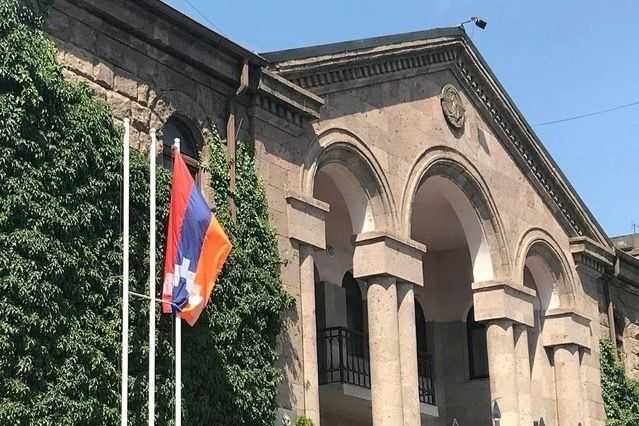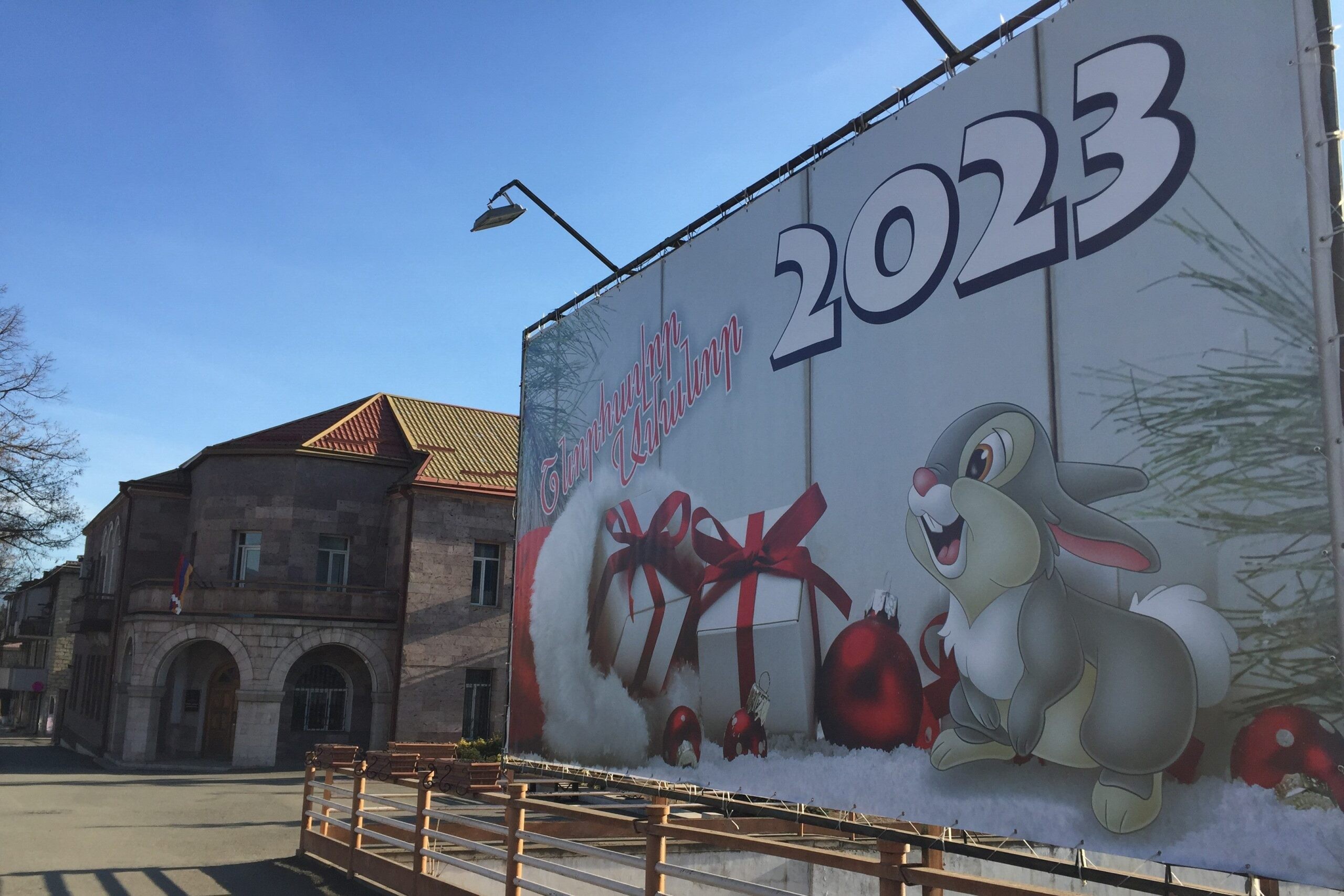
Nagorno-Karabakh has begun the new year with food and medicine shortages, as the region enters its fourth week under blockade.
No official celebrations were held in the centre of Stepanakert, with widespread reports of empty shelves and rationing of the limited food available.
The Lachin Corridor — the only road connecting Armenia to Nagorno-Karabakh — was blocked on 12 December by Azerbaijanis claiming to be ‘eco-activists’, purportedly to protest environmental damage due to ‘illegal mining’ in the region.
‘Most of the stores and supermarkets were closed during the New Year holidays’, Marut Vanyan, a freelance journalist from Stepanakert, told OC Media. ‘The Stepanakert market, usually noisy and crowded, was totally empty.’
Vanyan also said that there was a notable lack of festive spirit.
‘Usually people in Nagorno-Karabakh start congratulating each other from 15 December, but I haven’t heard any congratulations yet’.
He said that people were attempting to make light of the situation by sharing jokes and memes on social media about the shortages, but the situation on the ground was bleak.
‘The crisis is deepening’, he said. ‘Now the [shortages] are becoming visible within hours’.
No way home
The road’s closure has also affected those outside Nagorno-Karabakh, preventing more than a thousand Nagorno-Karabakh Armenians from returning home.
Several hundred people who had been stuck in Yerevan since the blockade began marked New Year’s Eve with a march from the centre of Armenia’s capital to the Yerablur military cemetery.
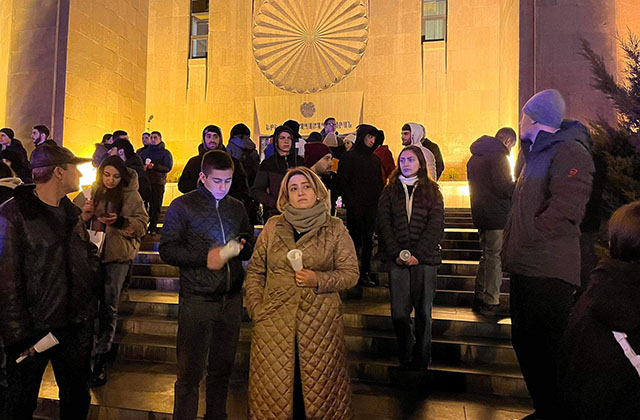
Others attempting to reach Armenia from Nagorno-Karabakh remain trapped behind the blockade. Alongside patients who cannot be transported to Yerevan for treatment, drivers from the Base Metal mining company, one of the largest companies in Nagorno-Karabakh, according to Vanyan, have been unable to leave for almost a month now.
[Read more on OC Media: Nagorno-Karabakh under siege]
‘We are at least in our homes, these peoples’ situation is much worse’, he said.
With many companies providing public food services having recently stopped working following food shortages and a government announcement, Vanyan said that those from outside of the region who were unable to leave had struggled to find and cook food for themselves.
Mine closure but no change
The purported reason for the blockade was mining and environmental pollution at the Kashen (Damirli) and Drmbon (Qizilbulag) mines. It came after a planned monitoring visit by Azerbaijani officials on 10 December was blocked by residents of the region and employees of the mining company.
After two weeks of the blockade, Nagorno-Karabakh’s government announced on 28 December that it had made a joint decision with the Base Metals mining company to suspend operations of the Kashen copper-molybdenum mine until an international examination had been conducted, and had filed a request with the United Nations to send an inspection team. The government added that mining in Nagorno-Karabakh was carried out ‘according to the highest international standards’.
No response was received to this from either the Azerbaijani activists blocking the road or Azerbaijani government officials.
Azerbaijan’s government has repeatedly denied that the protesters are responsible for the corridor’s closure, maintaining instead both that the road was closed by Russian peacekeepers and that the government in Nagorno-Karabakh has prevented its citizens from using the road.
Some humanitarian vehicles have been allowed to pass through the blockade, but reports from Baku and Stepanakert differ in their number. Since the road’s closure, about a dozen patients have been transported from Stepanakert to Yerevan for treatment, with Azerbaijani government-aligned media claiming that on 4 January, 16 vehicles, three from the Red Cross and 13 from the Russian peacekeepers, were allowed to pass through.
‘An entire nation will starve to death’
As of 28 December, officials in Nagorno-Karabakh have reported that there were almost no fruits, vegetables, pulses, grains or sugar left in shops, alongside a shortage of eggs, oil, flour, rice and tobacco, according to Artsakh Press.
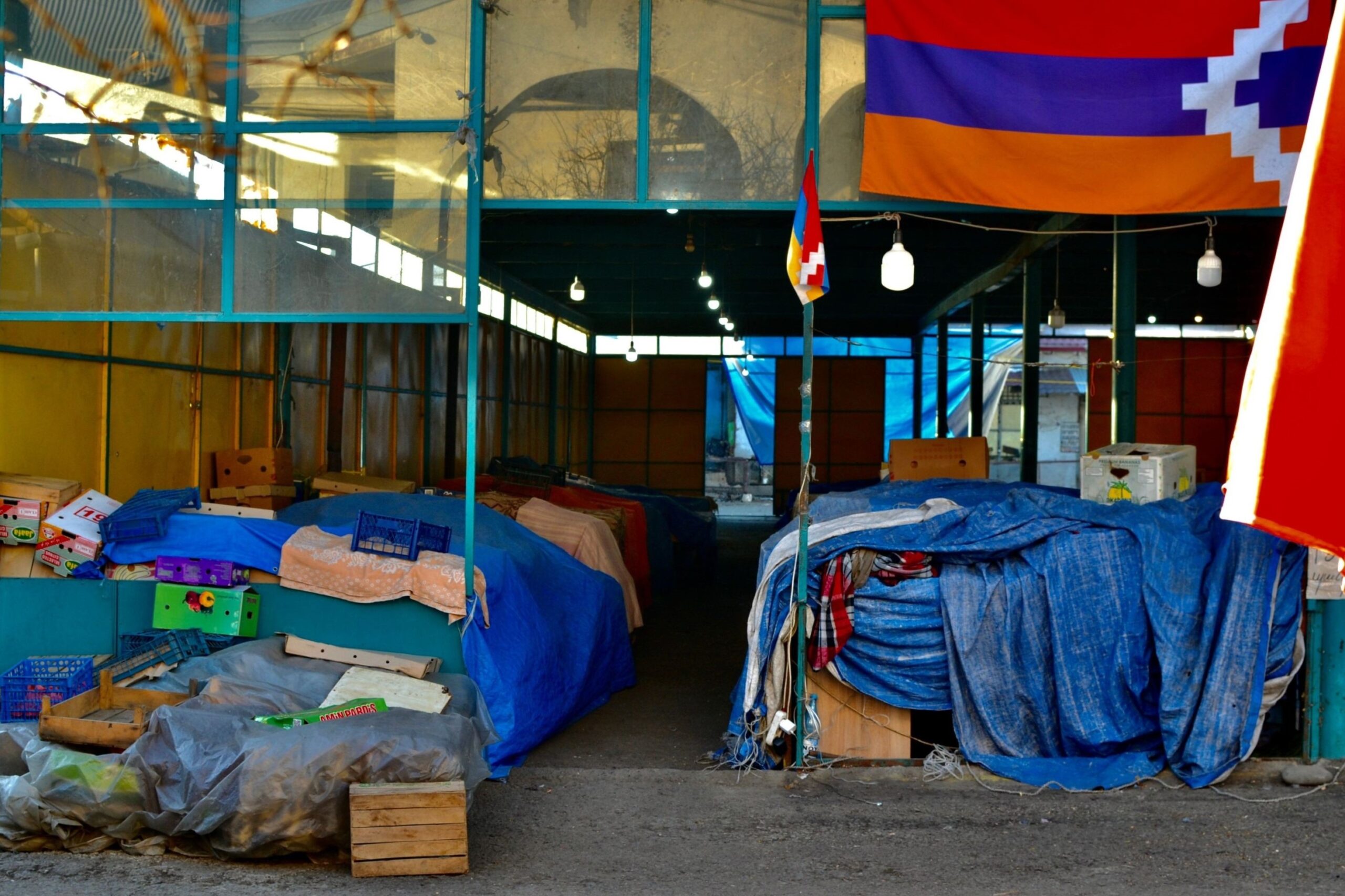
Vanyan said that there were almost no cigarettes left in the region, ‘a disaster for smokers’.
On Tuesday, Nagorno-Karabakh’s acting foreign minister, Davit Babayan, called for ‘concrete’ sanctions against Azerbaijan to force it re-open the corridor ‘in order to prevent humanitarian crisis’.
Speaking to RFE/RL, Babayan warned that ‘an entire nation will starve to death’, if the road remained closed.
While the Azerbaijani activists have claimed throughout to be allowing medical and humanitarian vehicles to pass, only one delivery of humanitarian aid is confirmed to have reached Nagorno-Karabakh; ten tonnes of medicine and baby food sent by the International Committee of the Red Cross on 25 December. According to the government in Stepanakert, the supplies were only sufficient for around ten days.
On 3 January, Armenia’s Foreign Ministry suggested an international fact-finding mission be deployed to the Lachin Corridor and Nagorno-Karabakh ‘to assess the humanitarian situation on the ground, as well as to ensure unhindered humanitarian access to Nagorno-Karabakh for relevant UN bodies’.
Accusing Azerbaijan of a ‘policy of ethnic cleansing [that] compels the population of Nagorno-Karabakh to a forced displacement’, the ministry added that it expected Russia ‘to make clear efforts to eliminate this flagrant violation [of the ceasefire regime] without any preconditions’.
For ease of reading, we choose not to use qualifiers such as ‘de facto’, ‘unrecognised’, or ‘partially recognised’ when discussing institutions or political positions within Abkhazia, Nagorno-Karabakh, and South Ossetia. This does not imply a position on their status.

